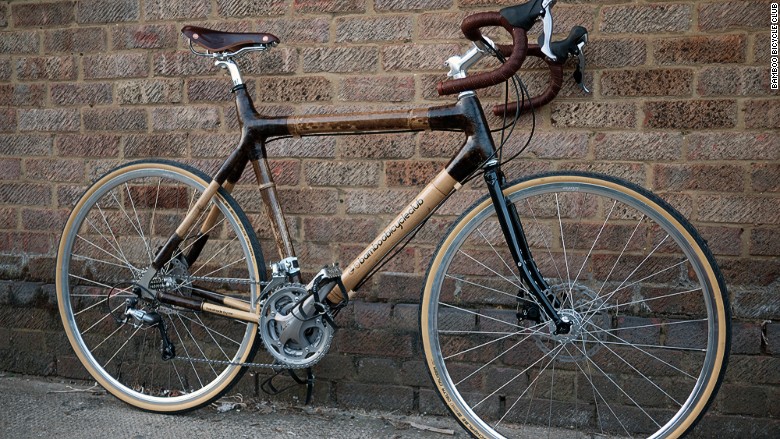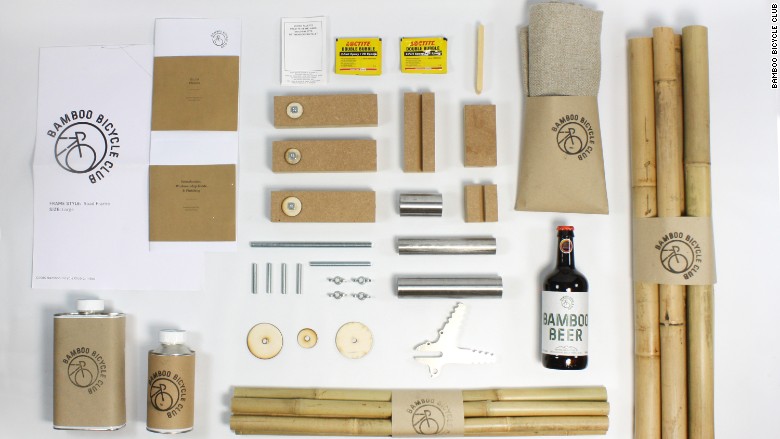
Bamboo has been used for thousands of years in Asian architecture and construction. And green-minded folks everywhere are using it for flooring, fabrics and more. But bicycles?
In a small workshop tucked away in London, the Bamboo Bicycle Club is offering tutorials teaching people how to build their own entirely bespoke bamboo bike. They also sell home-build kits, giving anyone in the world a chance to try their hand at building their own bicycle out of bamboo.
Sure, bamboo is sustainable, but it also offers a superior ride, according to the company.
The material provides natural suspension, says engineer James Marr, co-founder of the Bamboo Bicycle Club. And because bamboo is light, durable, and easy to shape, riders can tinker and modify their design until it's absolutely right.
"You're only going to make people use sustainable materials if [they're] better," Marr says. "So bamboo has to be better -- otherwise people aren't going to choose it."
Related: This startup is protecting Afghanistan's prized rare emeralds
One big advantage of bamboo is its shock-absorbing qualities. Bamboo bikes are smoother and more comfortable to ride, reducing fatigue during longer journeys, says Marr.
"It's great for a lot of people who have injuries," he says.
The frames are strong too.
"The material doesn't deteriorate so long as it's sealed and protected," says Marr, "We usually expect the bikes to last 10 to 15 years minimum."

When the firm started four years ago, its only offerings were in-person classes showing DIY-ers how to create their own custom-made bicycle frames out of bamboo. But as interest grew, Marr found that many potential customers weren't able to travel to London to attend the workshops, so that's when the company came up with the idea of home-build kits.
Kits range in cost from $360 to $460, and come in various designs, including road bikes, mountain bikes and even tandems.
"You place your order and everything arrives in the package ready to go," says Marr.
Seventy percent of its bicycle kits are sold to customers in Europe, the United States and Australia.
But shifting from teachers to exporters has been a difficult task for a company of three, who all share the responsibility of running the workshops, providing online support, managing sales and running social media pages.
"There's challenges and logistics managing shipment abroad [and] dealing with customs," Marr adds. "Communication too. We've had to change our product manual slightly to align with non-British markets."
They even offer Skype chats, where they give kit buyers advice on assembling the bikes.
"Our success -- it's all through word of mouth," Marr says. "I think nowadays it's about creating a good product, and if it's good, people will find you."



